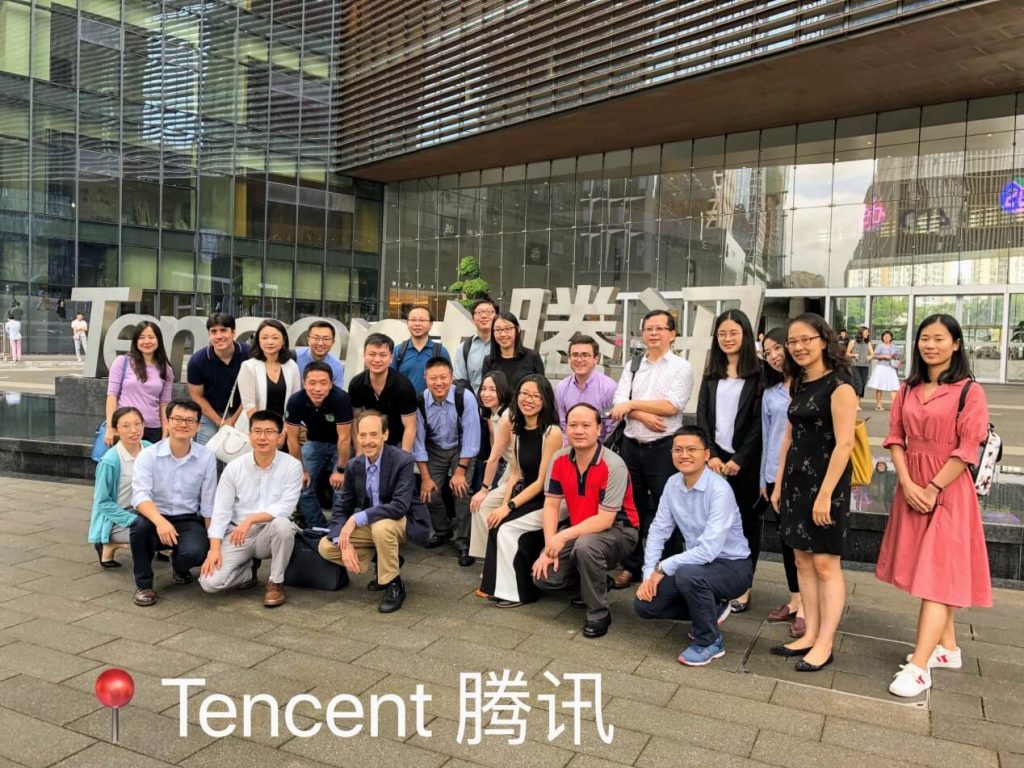On July 17th and 18th, CKGSB hosted its 5th Marketing Research Camp at the Langham Shenzhen. The research camp summoned over 30 marketing academics from top universities in the US, Canada, mainland China and Hong Kong.
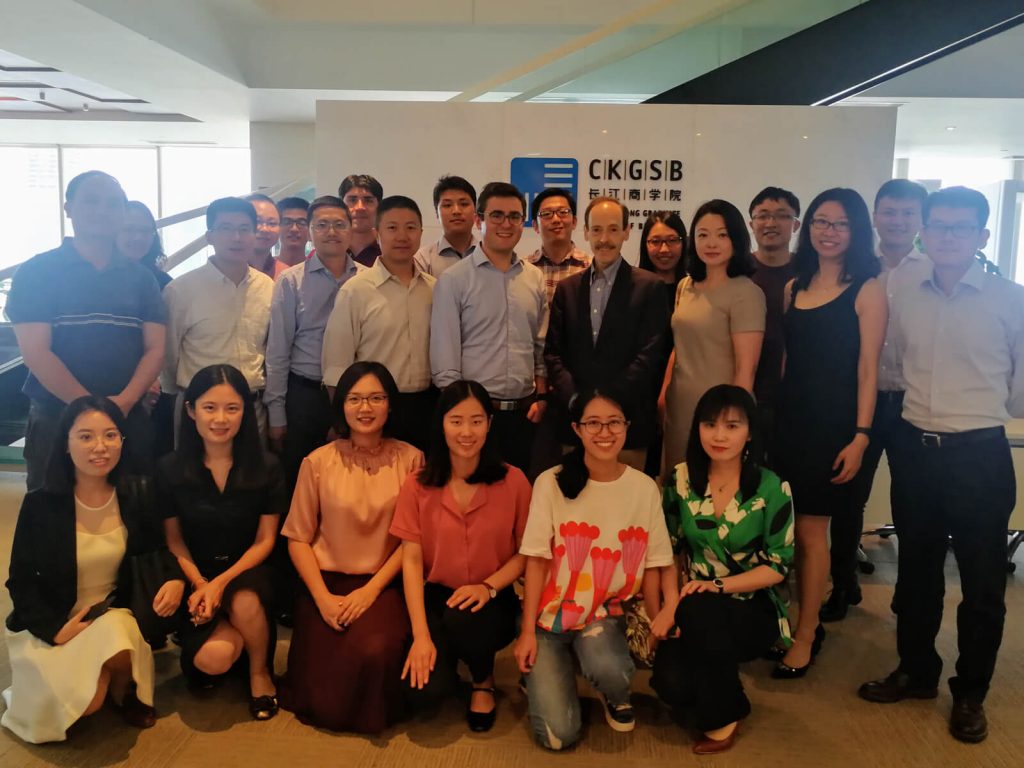
In the morning of July 17th, three professors from Tuck, Wharton and Carlson School of Management shared their findings from their recent working papers. The first presenter—Scott Neslin, Albert Wesley Frey Professor of Marketing from the Tuck School of Business at Dartmouth College—shed light on his research, titled The Role of the Physical Store: Developing Customer Value through ‘Fit Product’ Purchases, which has found that fit-product purchases accelerate customer migration to a high-value state, especially if those purchases are made in a physical store. However, when customers become more valuable, they tend to shop online, and that makes them less valuable as a customer as there is more competition and it’s easier for users to switch websites. The paper has also found that in order to bring customers back to a high-value state, physical stores can use direct mail which effectively enhances the likelihood of a customer buying fit products offline.
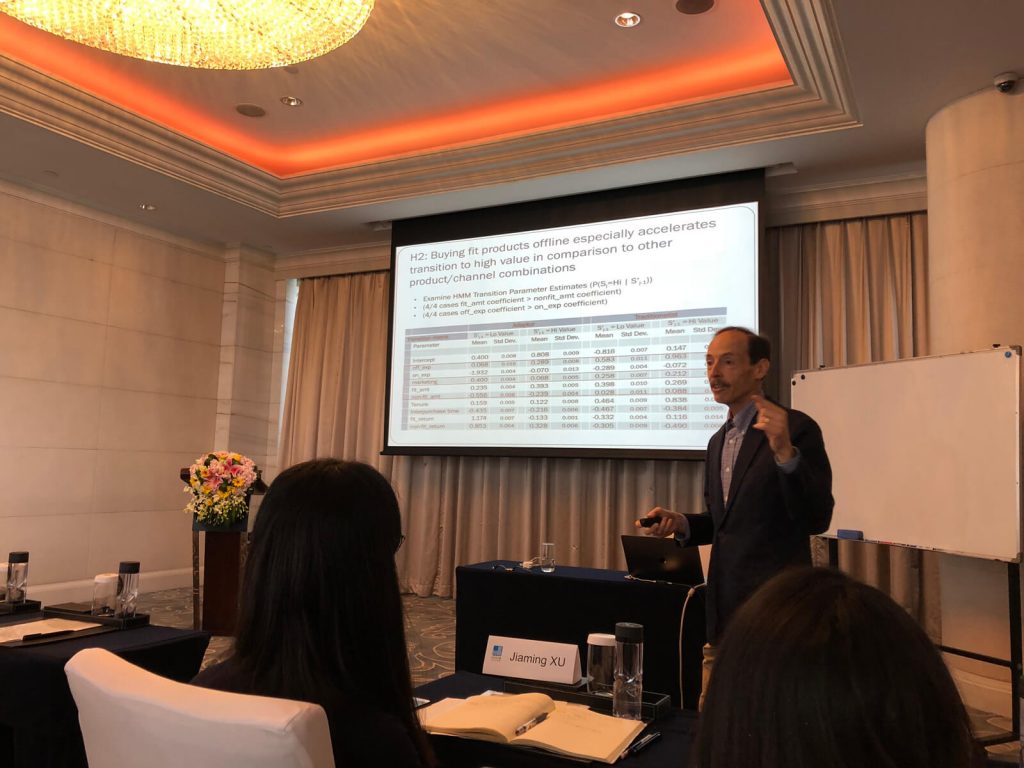
Scott Neslin, Albert Wesley Frey Professor of Marketing from the Tuck School of Business
The second speaker, Ryan Dew, Assistant Professor of Marketing at Wharton, revealed the findings of his research on understanding logos from a data-driven perspective. By applying a modeling framework on a dataset of hundreds of logos, Dew’s paper found that it’s possible to use a firm’s logo to predict the firm’s business and to predict how people will see the brand through data analysis. He also shed light on how it’s possible to use computers to take written words and come up with a coherent visual brand identity that’s consistent with those words. Ryan also shared an interesting example: CKGSB logo is light blue, a color that tends to be perceived as intelligent according to their logo features’ description.
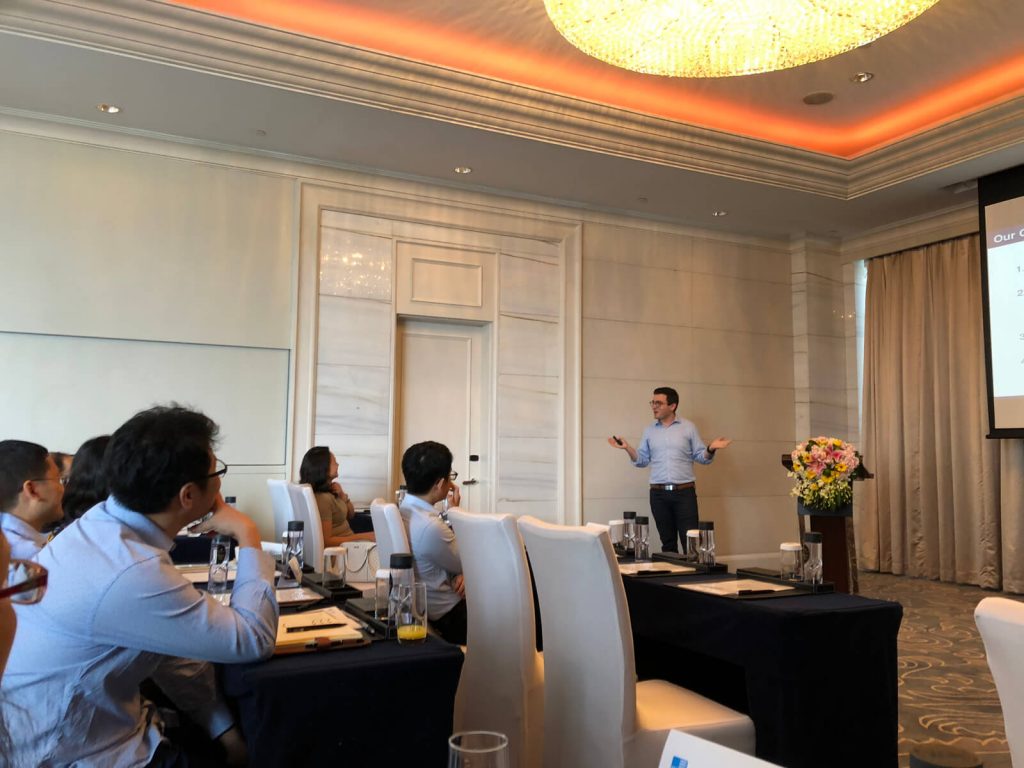
Ryan Dew, Assistant Professor of Marketing at Wharton
Philadelphia implemented a sugary drink tax in January 2017. It is one of the steepest in the U.S. at $0.015 per ounce, which was estimated to increase the cost of sugary drinks by as much as 20%. Song Yao, Associate Professor of Marketing at the Carlson School of Management shared his study on The Impact of Soda Taxes on Nutritional Intake and Welfare, which investigates policy interventions on sweetened beverages that meant to discourage unhealthy food consumption and fight obesity and diet-related diseases. Through in-depth analyses and documentation, they found that the tax on sweetened beverages has had limited effects in reducing total consumption or leading to a shift in consumption towards healthier products. Furthermore, the financial burden is the highest for low income households, while higher income households avoid the tax by driving to stores outside the taxed zone.
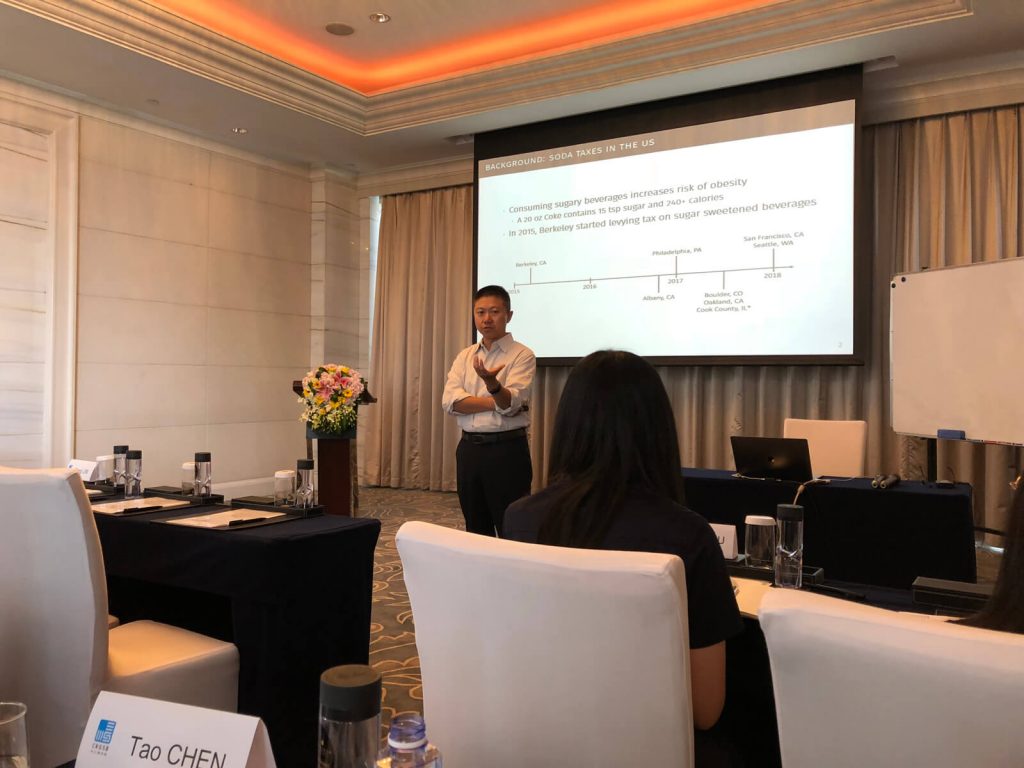
Song Yao, Associate Professor of Marketing at the Carlson School of Management
In the afternoon, Wu Chunhua, Assistant Professor at UBC Sauder School of Business shared his study on how mobile hailing technology affects taxi drivers’ productivity. The new technology reduces information asymmetry between drivers and riders by allowing taxi drivers to observe the nearby pickup and drop-off locations of potential customers. They find that adopting mobile hailing technology immediately increases drivers’ productivity by 25 to 50%. Yet the productivity gains decline as more drivers adopt the technology. Comparing driving patterns before and after the technology adoption, his study shows that productivity gains are largely achieved by sorting requests and selecting more profitable higher-fare trips rather than by the reduction in search time between trips.
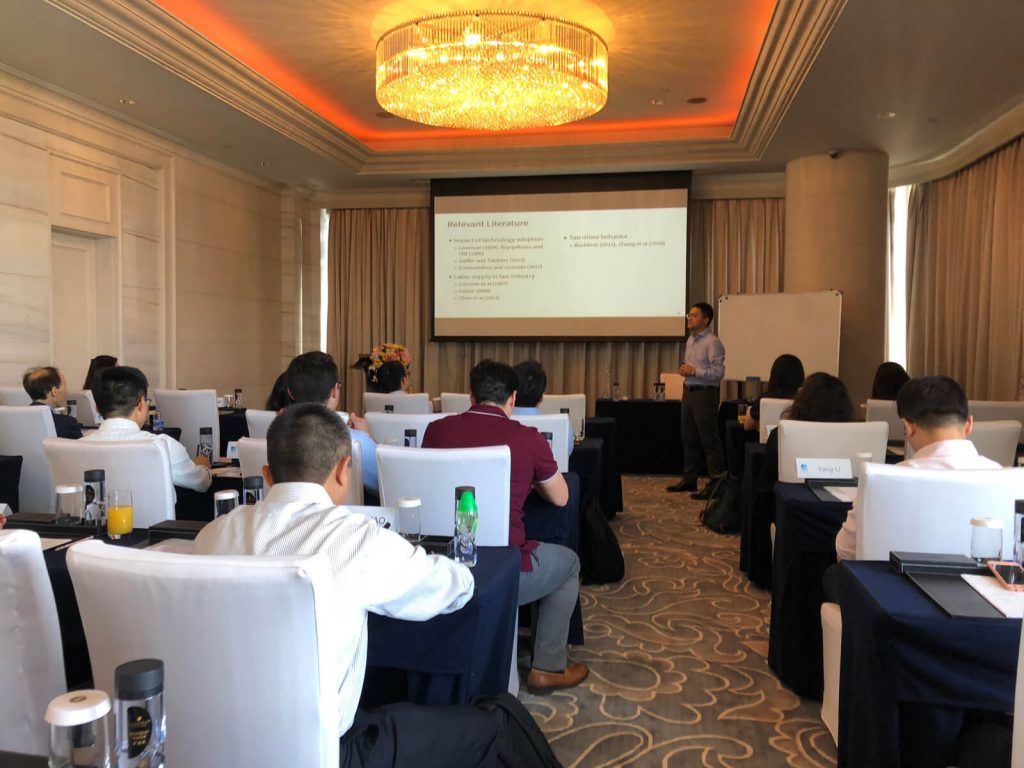
Wu Chunhua, Assistant Professor of Marketing at UBC Sauder
“When consumers incur search costs to evaluate if a product matches their needs, recommendation by the firm becomes a source of competitive advantage,” says Jing Bing, Associate Professor of Marketing at CKGSB. His working paper, titled Competition in Recommendation, studies firms’ strategic choice of recommendation accuracy in a duopoly. As differentiation in recommendation accuracy expands at low or high search costs but shrinks at intermediate search costs, symmetric firms may choose different recommendation accuracies to relax price rivalry.
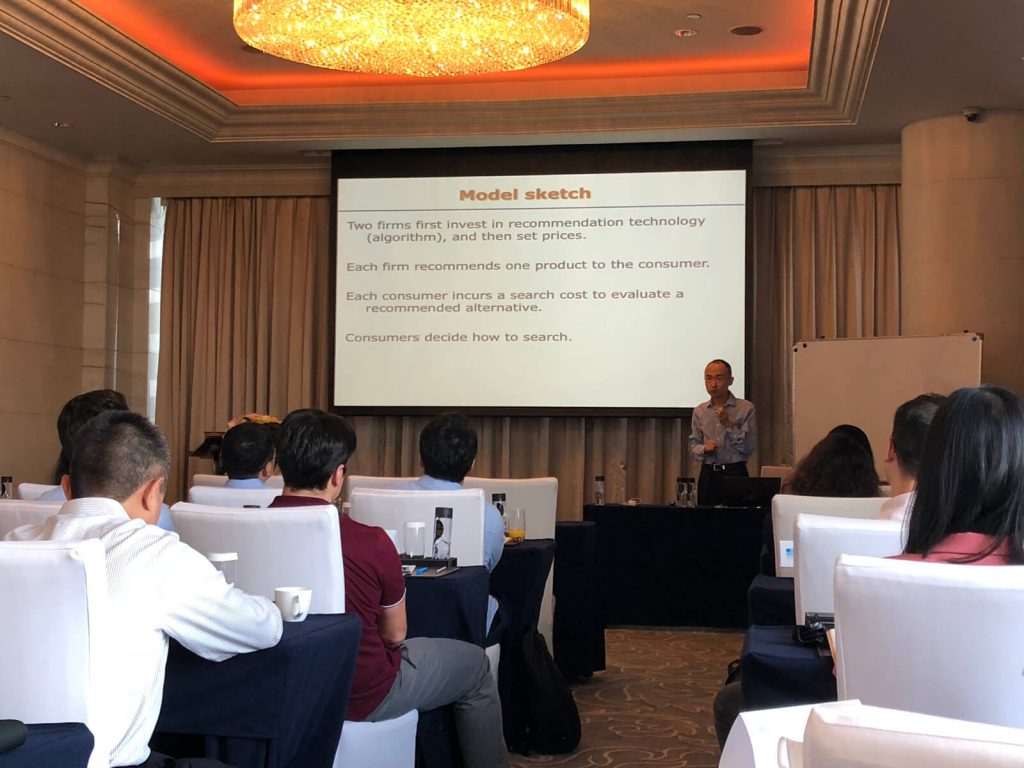
Jing Bing, Associate Professor of Marketing at CKGSB
Many products are correlated because they share some similar or common attributes. The last speaker Lin Song, Assistant Professor of Marketing at Hong Kong University of Science and Technology Business School, talked about his research on Informational Complementary. The study shows that when these attributes are uncertain to consumers, a complementarity effect can arise among competing products, in the sense that a lower price of one product may increase the demands of others. The effect occurs when consumers optimally search for information about both common and idiosyncratic product attributes prior to purchase. Lin and his co-author characterize the optimal search strategy for the correlated search problem and provide the conditions for the existence of the complementarity effect—one is that if the search result for the other product is positive, consumers are likely to conduct the purchase on the higher price one. The study further explores the implications of the effect for firm pricing: When firms compete in price, although product correlation may weaken differentiation between firms, the complementarity effect due to correlated search may raise equilibrium price and profit.
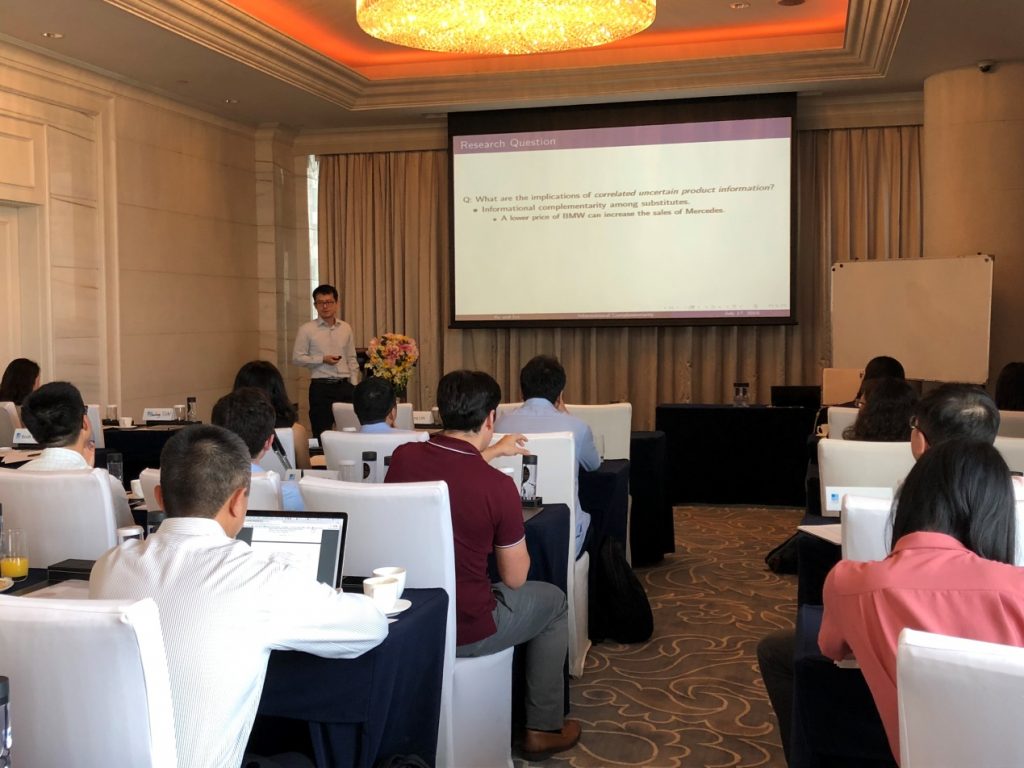
Lin Song, Assistant Professor of Marketing at HKUST Business School
On the second day of the Marketing camp, the group visited Tencent, Inveno and Jiguang, three leading companies in their respective fields that are run by CKGSB alumni.
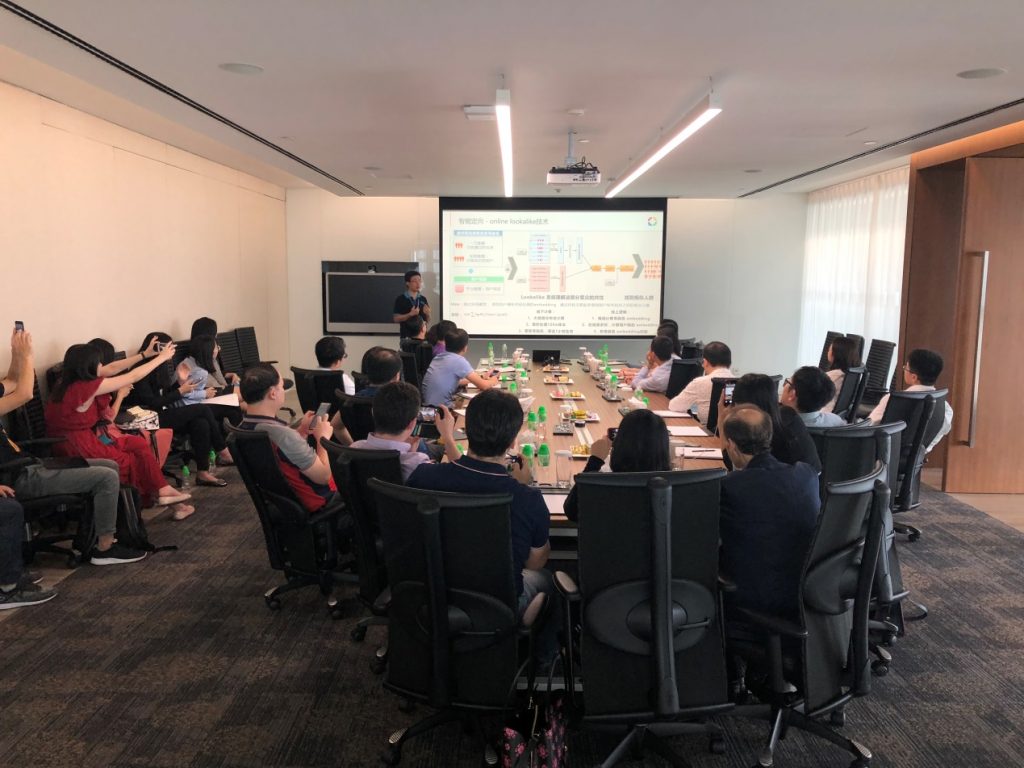
A senior engineer at Tencent presents the firm’s data analysis model to the group
The group of more than 30 marketing professors and scholars, who attended CKGSB’s Marketing Camp, left Shenzhen with a positive impression and tremendous takeaways. “Many camps have sessions of presentations, but adding the company visit is very unique, the combination is absolutely tremendous,” said Professor Scott Neslin. “On day one we had a great variety of papers, and on day two I was really impressed by the energy witnessed at the Chinese companies, where young people in their twenties are using data to change the way things work, and the whole sophistication of data analysis is very high.”
“It’s a great opportunity where you can have a high level of research publications and first- hand experience of how high-tech companies in Shenzhen handle real life problems,” added Francisco Cisterns, Assistant Professor of Marketing at CUHK Business School.
